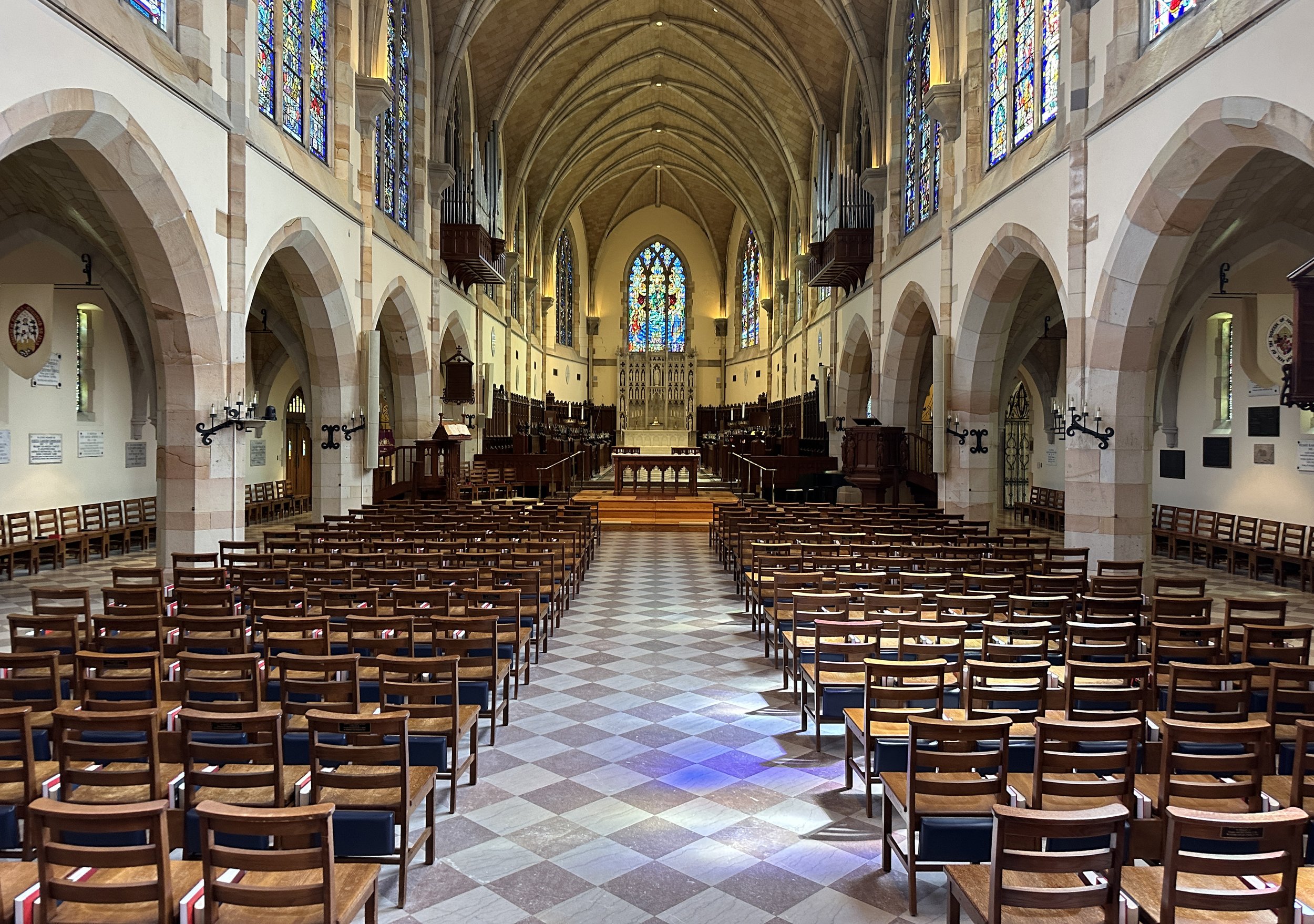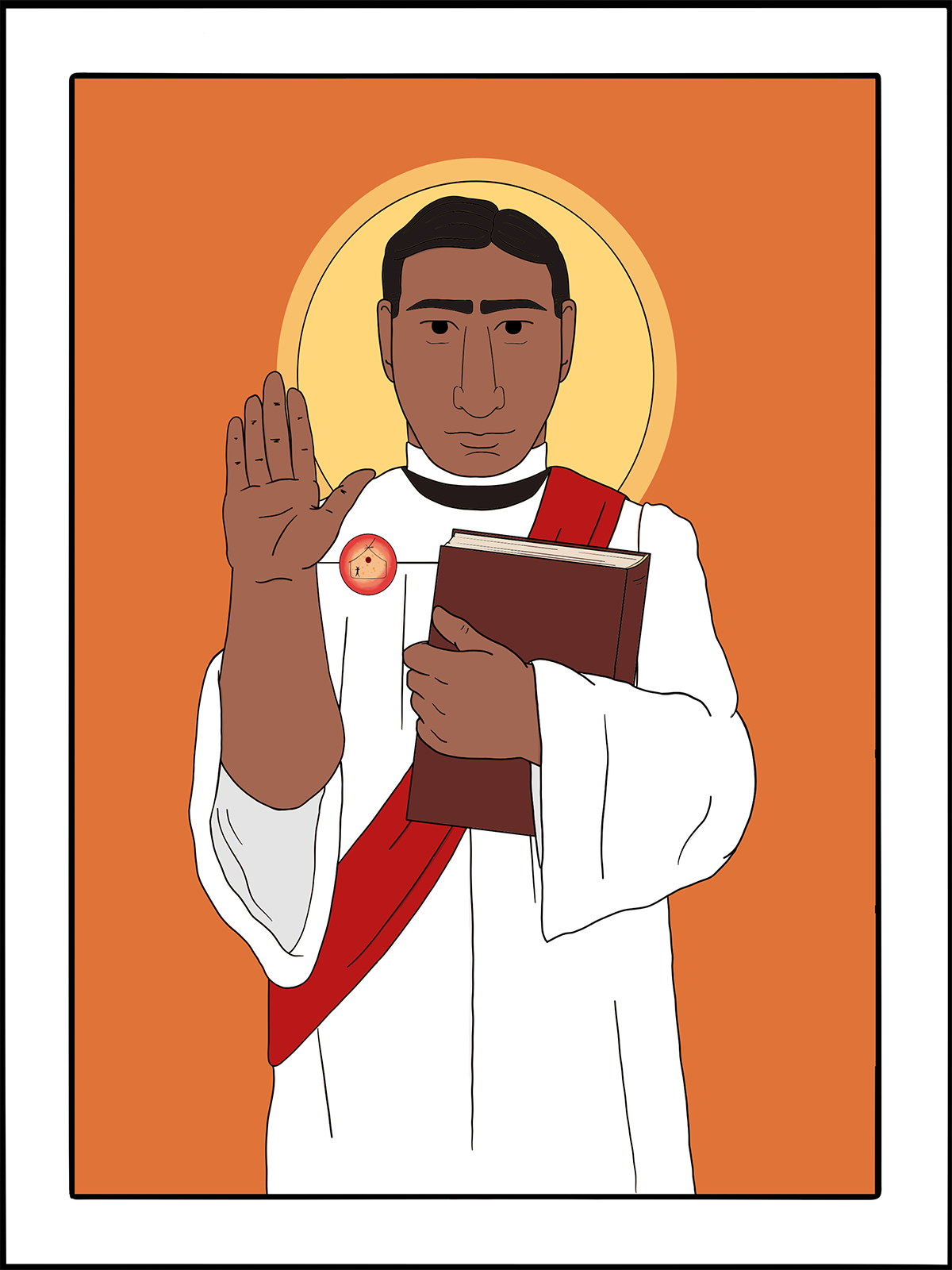
September 1
David Pendleton Oakerhater
Deacon, 1931
art by Rev. Kirsten Kohr of Geneva, Ohio O God of unsearchable wisdom and mercy; Liberate us from bondage to self, and empower us to serve you and our neighbors, that like your servant David Oakerhater, we might bring those who do not know you to the knowledge and love of you; through Jesus Christ, the captain of our salvation, who lives and reigns with you and the Holy Spirit, one God for ever and ever. Amen.
“God’s warrior” is an epithet by which David Pendleton Oakerhater is known among the Cheyenne Indians of Oklahoma. The title is an apt one, for this apostle of Christ to the Cheyenne was originally a soldier who fought against the United States government with warriors of other tribes in the disputes over Indian land rights. Born around the year 1851, by the late 1860s Oakerhater had distinguished himself for bravery and leadership as an officer in an elite corps of Cheyenne fighters.
In 1875, after a year of minor uprisings and threats of major violence, he and twenty-seven other warrior leaders were taken prisoner by the U.S. Army, charged with inciting rebellion, and sent to a disused military prison in Florida. Under the influence of a concerned Army captain, who sought to educate the prisoners, Oakerhater and his companions learned English, gave art and archery lessons to the area’s many visitors, and had their first encounter with the Christian faith. The captain’s example, and that of other concerned Christians from as far away as New York, had a profound effect on the young warrior. He was moved to answer the call to transform his leadership in war into a lifelong ministry of peace.
With sponsorship from the Diocese of Central New York and financial help from a Mrs. Pendleton of Cincinnati, he and three other prisoners went north to study for the ministry. At his baptism in Syracuse in 1878, he took the name David Pendleton Oakerhater, in honor of his benefactress. Soon after his ordination to the diaconate in 1881, Oakerhater returned to Oklahoma. There, he was instrumental in founding and operating schools and missions, through great personal sacrifice and often in the face of apathy from the church hierarchy and resistance from the government. He continued his ministry of service, education, and pastoral care among his people until his death on August 31, 1931.
Half a century before, the young deacon had told his people: “You all know me. You remember when I led you out to war I went first, and what I told you was true. Now I have been away to the East and I have learned about another captain, the Lord Jesus Christ, and he is my leader. He goes first, and all he tells me is true. I come back to my people to tell you to go with me now in this new road, a war that makes all for peace.”
Excerpted directly from “Lesser Feasts and Fasts 2022,” p. 384-385.

